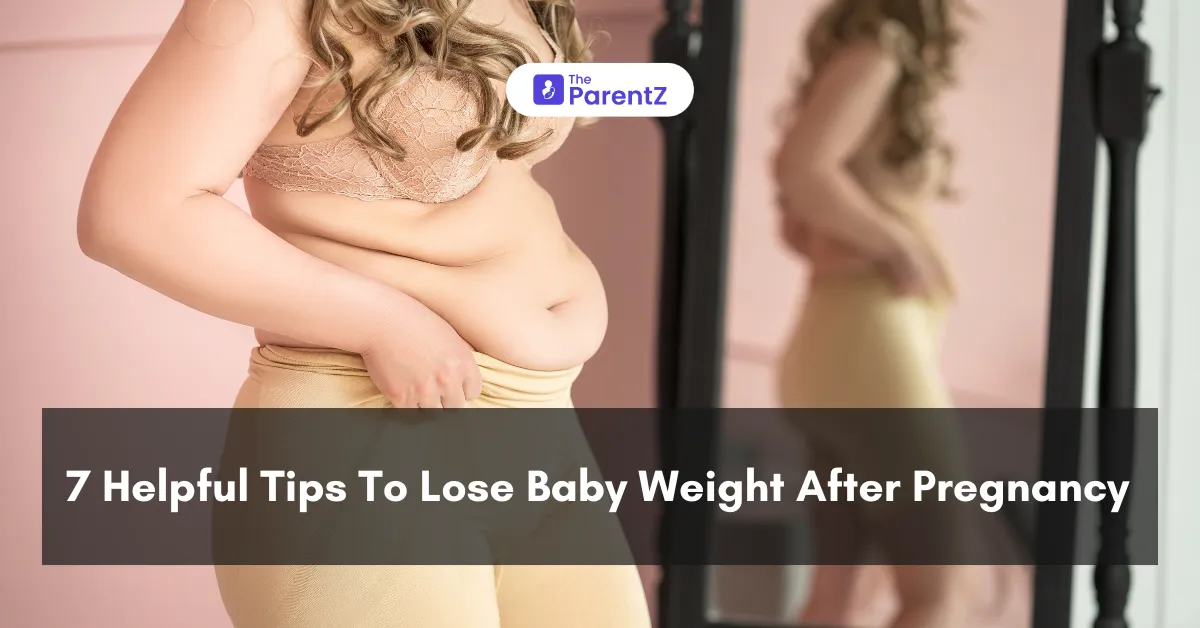After delivery, for many moms, the most asked question is about how they can get their body back. Fortunately, losing baby weight doesn’t have to be overwhelming.
Moreover, you don’t need to follow the extreme diet culture or spend several hours at the gym. Did you know that just by making small changes that work for your body and lifestyle, you can significantly lose baby weight after pregnancy?
Read below this article to explore seven proven ways to shed baby weight after pregnancy.
Acceptance
The most important thing you can do is to accept your body as it just spent nine months growing a human.
Therefore, it's essential to give it time to recover.
In fact, according to a study, women naturally lose about 13 pounds right after delivery due to the baby, placenta, and fluids. However, losing additional weight should be gradual. The recommended goal is to lose only about 1–2 pounds per week.
If you’re trying to lose weight too quickly, know that it can affect energy levels, milk supply, and postpartum recovery.
Breastfeeding May Help
Breastfeeding burns calories. It has been noticed that many women notice weight loss while nursing.
Did you know breastfeeding alone can burn between 300–500 extra calories per day, which helps new moms shed baby weight more easily?
However, some women might lose weight faster, while others retain some extra pounds until weaning.
Include Protein and Fiber-Rich Foods
Eating nutritious foods is essential when it comes to boosting your metabolism and providing energy for a faster recovery. It is a must to incorporate protein in your diet, as it helps rebuild muscles while stabilizing blood sugar.
Besides, including fiber-rich foods such as vegetables, whole grains, nuts, and seeds can also help prevent overeating and support digestion.
Stay Hydrated
Drinking water helps with digestion, milk production, and appetite control. In fact, in a study, it was revealed that drinking 500 ml of water before meals increases metabolism significantly. Furthermore, staying hydrated also reduces bloating and fatigue, common issues during postpartum recovery.
So, how much water do you need?
The recommended intake is 8–12 cups (2–3 liters) daily. However, if you’re breastfeeding, increase this intake to about 16 cups (4 liters) per day.
Physical Movement
Did you know gentle movement is more effective in the postpartum phase compared to intense workout sessions?
Walking is one of the best ways to start. So you can give 30 minutes a day to begin with. After around 6 weeks postpartum, you can gradually introduce strength training, yoga, and Pilates into your daily routine.
Get Proper Sleep
Another surprising fact is sleep plays a huge role in weight loss.
On the contrary, sleep deprivation increases hunger hormones and decreases fullness hormones, which makes it even more difficult to control cravings. The best approach to get better sleep is to nap when your baby naps, share nighttime duties with your partner, and avoid caffeine after 2 PM.
Avoid Extreme Diets & Be Kind to Yourself
The worst thing you can do to yourself is crash dieting.
The reality is—extremely low-calorie diets will only lead to muscle loss, fatigue, and a very poor metabolism. In fact, if you’re breastfeeding, cutting calories too much will eventually reduce milk supply.
Therefore, it's essential to incorporate whole, nutrient-rich foods along with practicing portion control.
Conclusion
The truth is—losing baby weight takes time. However, with healthy lifestyle changes, you will surely notice yourself feeling stronger and more energized. At the end, instead of prioritizing losing baby weight, focus more on feeling good in your new body.





Be the first one to comment on this story.